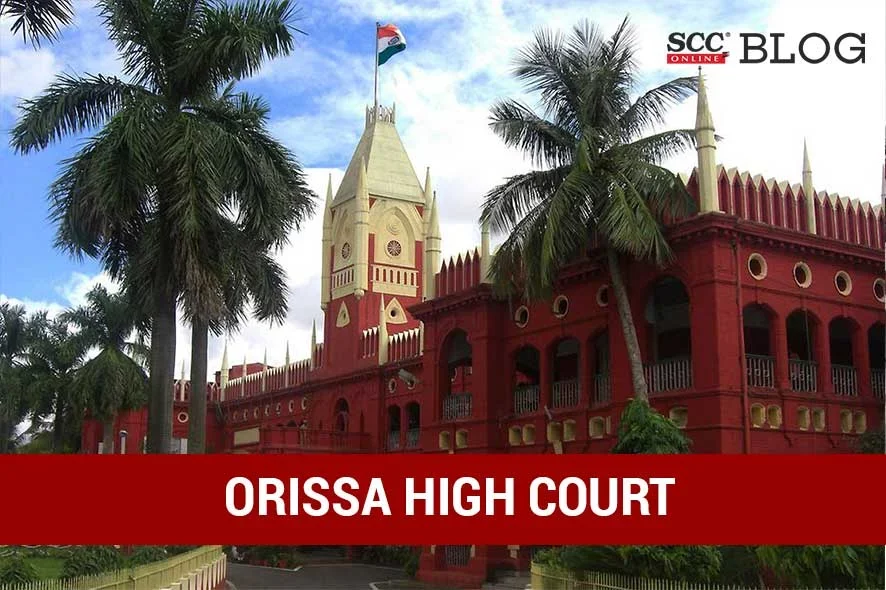Orissa High Court: In a criminal appeal filed under Section 449 of the Code of Criminal Procedure, 1973 (‘CrPC’), against the order of the Additional Sessions Judge (‘ASG’), wherein the appellant was directed to furnish Rs. 20,000/- as penalty in the capacity of a surety for the accused persons, the Single-Judge Bench of S.K. Sahoo J., allowed the appeal and dismissed the impugned order as it was not in accordance with the law.
Background
In the matter at hand, the appellant stood as surety for four accused persons for the offences under Sections 147, 148, 323, 294, 149 of the Penal Code, 1860 (‘IPC’) with Section 3(1)(x) of the Scheduled Caste and Scheduled Tribe (Prevention of Atrocities) Act, 1989. Subsequently, the accused persons were released on bail according to the order passed by the Special Judge dated 27-01-1997 with certain conditions. One condition was that the accused shall appear before the Investigating Officer (‘IO’) every Saturday at 10:00 a.m. and the appellant was the surety for the accused persons and furnished the bail bond.
On 01-02-1997, the appellant filed an advance petition before the Court to get discharged as surety as the accused persons were not found in their village, when the appellant went there to produce them at the police station. However, the Special Judge rejected the petition filed by the appellant and issued a non-bailable warrant of arrest against the accused persons for their production and also directed to start a separate criminal case against the appellant. Subsequently, the ASG, vide impugned order imposed the penalty of Rs. 20,000/- on the appellant and issued a non-bailable warrant of arrest against the appellant.
Analysis
The Court referred to Section 444 of the CrPC which provides for discharge of sureties and said that it is apparent that if any surety for bail seeks to discharge his bond, he was required to apply for the same before the Court concerned and the Court was duty-bound to issue an arrest warrant against the accused or the person who was released on bail upon the bond of such surety. After the appearance of the accused in the Court, the Court should discharge the bail bond of the surety and could ask the accused to find other sufficient surety. The Court also added that following the appearance of such person, the Magistrate shall discharge the bail bond of the surety and shall ask the person to find other sufficient sureties and if he fails to do the same, the Court can commit such person to jail.
The Court stated that the object of taking surety is to ensure the availability of the accused before the Court on dates of trial and judgment. Further, the Court said that when the bond is forfeited, it becomes the duty of the Court to record the grounds of proof on which the forfeiture was based. Nowhere it has been provided that if the surety seeks to discharge himself then the Court shall initiate criminal proceedings against him. The Court referred to Raghubir Singh v. State of Bihar, (1986) 4 SCC 481, wherein it was held that on the discharge of the bond, the responsibility of the surety ceased, and the accused person was put back in the position where he was immediately before the execution of the bond.
Further, the Court referred to Maneka Gandhi v. Union of India, (1978) 1 SCC 248 wherein,the principle of audi alteram partem i.e., the right to be heard of an affected person was emphasized. The Court said that it is well settled in law that before a decision is taken to forfeit the bond, a hearing must be afforded to the as demanded by the principles of natural justice and the same must be read into a statute even though there was no express provision therein complying with the same unless the statute excluded the rule of audi alteram partem. Also, the direction to forfeit the bond involves a process of decision as to why the amount under the bond shall not be recovered from the executant.
In the present case, the Court noted that the ASG failed to appreciate the position of law and at the stroke of judicial passion, passed the impugned order by tightening criminal liability on a person who was the surety of the accused persons and with all bona fide credentials had informed the Court of his predicament to continue as such. The Court opined that it was hardly incumbent upon the Presiding Officer to employ such harsh punitive measures on such a person.
Therefore, the Court held that the forfeiture of the bail bond without giving the opportunity of hearing to the appellant was illegal and suffered from the vice of derogation of principles of natural justice. Further, the Court said that on basis of bonafide conduct of the appellant, the imposition of penalty of Rs. 20,000/- and issuance of conditional non-bailable warrant of arrest against the appellant could not be sustained and therefore, it was set aside. Thus, the Court allowed the appeal.
[Pradeep Kumar Das v. State of Odisha, 2023 SCC OnLine Ori 5187, Order dated 13-07-2023]
Advocates who appeared in this case :
Counsel for the petitioner: Advocate Abhisek Pradhan;
Counsel for the respondent: Additional Standing Counsel Siddharth Shankar Mohapatra.








